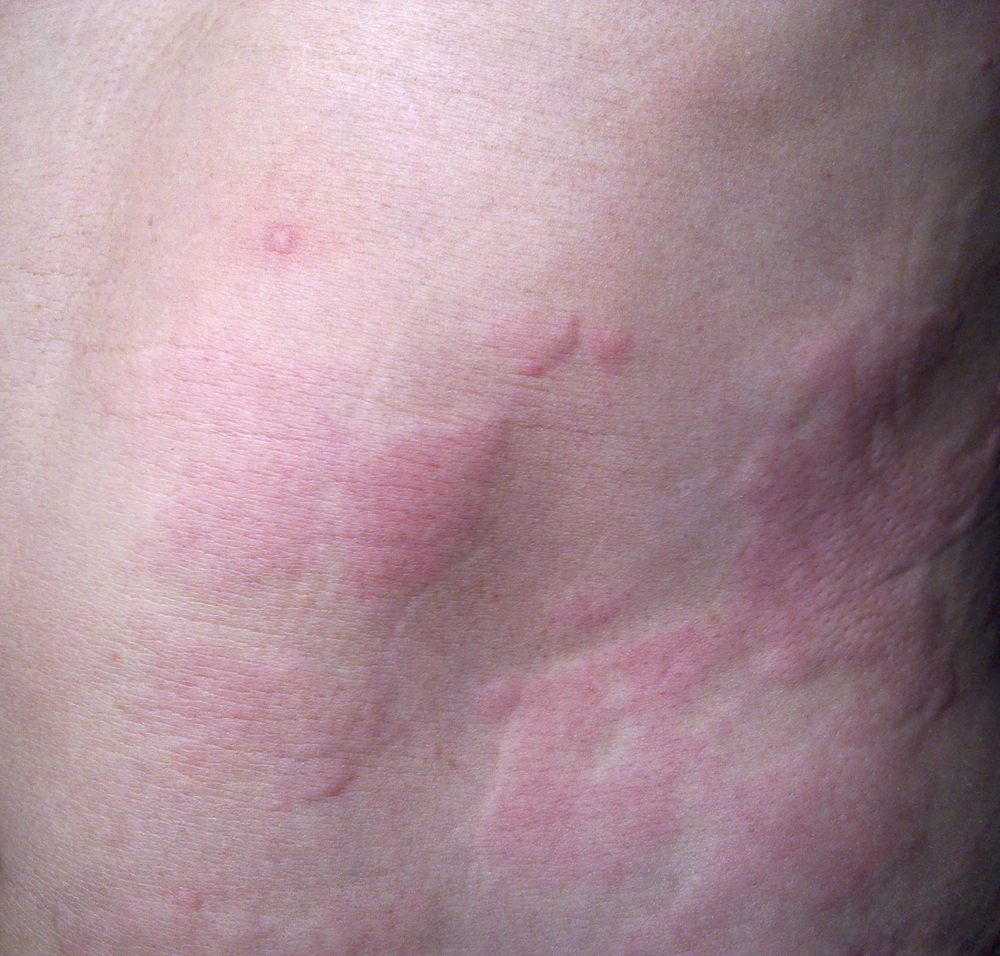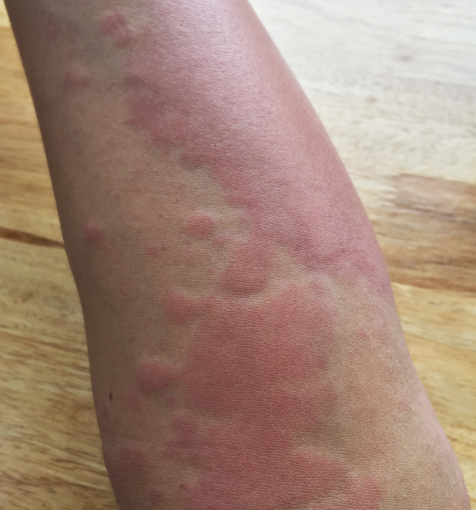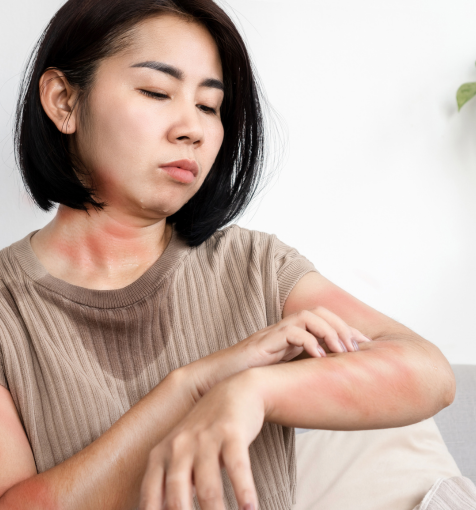Get Relief from Uncomfortable Welts in New Jersey
Hives, also known as urticaria, are a common skin condition that impacts about 20% of people at some point in their lives. They appear as raised, pink or red welts that may itch, sting, or burn, ranging in size from tiny dots to large plaques. At Skin & Laser Center of NJ, we help patients of all ages find relief from the discomfort caused by hives through personalized care and treatment.


Hives develop when the body releases histamine and other chemicals into the skin, triggering inflammation. While allergies are one of the most common causes, there are many potential triggers, including:
Food allergies such as shellfish, nuts, or dairy
Medications including antibiotics or aspirin
Infections or illnesses ranging from colds to more serious conditions
Environmental triggers such as pollen, pet dander, or insect stings
Physical triggers like exercise, stress, sun exposure, or changes in temperature
Hives typically appear within minutes to hours of exposure to a trigger and often disappear within 24 hours. However, new bumps can continue to develop for days or even weeks, sometimes seeming to move from one area of the skin to another.
While hives are usually temporary and not dangerous, the symptoms can be uncomfortable and disruptive. Common signs include:
Raised welts that are red, pink, or skin-colored
Itching, stinging, or burning sensations
Swelling in the affected area
Bumps that change shape, size, or location over time
Seek immediate medical attention if hives are accompanied by swelling of the lips, tongue, or throat, or if you experience difficulty breathing, as these may indicate a serious allergic reaction (anaphylaxis).


For most patients, hives can be effectively managed with treatment. Our providers may recommend:
Antihistamines to reduce itching and swelling
Corticosteroids for more severe or persistent cases
Avoidance strategies to help identify and stay away from known triggers
Specialized testing if the cause of your hives is unclear or chronic
With the right treatment, patients often experience rapid relief from symptoms and can return to their normal routines without discomfort.
Learn More About Hives
The first step to treating hives is identifying the cause. By avoiding the trigger, patients can avoid future outbreaks—similar to contact dermatitis. The most common cause of hives is an allergic reaction. Some common allergic triggers include:
Hives can be triggered by causes other than allergic reactions. These other causes include:
It is very difficult or even impossible to avoid some of these triggers, such as extreme temperatures, sunlight, or catching colds; and exercise is an important part of healthy living. Identifying triggers is the first step and can provide information when it comes for developing a plan.
When a patient has hives, we can often make the diagnosis by simply looking at the skin, though finding the cause can be a challenge—especially if the welts have been occurring for more than six weeks. Identifying the cause is essential to avoid future outbreaks. We will review your health history in detail, ask questions, and perform a physical exam.
Some of the medications that may be prescribed include:
In addition to prescribing medication, we may perform blood tests, allergy tests, or a routine small skin biopsy. Patients experiencing mouth or lip swelling or difficulty breathing should call 9-1-1. You may need a shot of epinephrine or other urgent treatments.
Convenient walk in hours available below. No appointment needed! Accepting private insurance and medicare. No medicaid plans.
Learn more about medical treatments at New Jersey’s Skin & Laser Center of NJ. Call 201-500-7525 or contact us online to schedule a consultation.